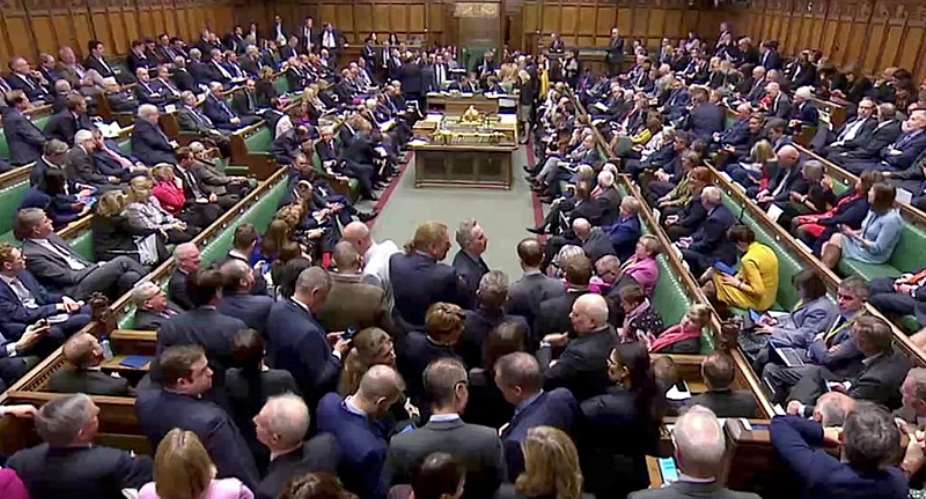Britain has begun issuing passports with the words "European Union" removed from the front cover -- despite Brexit being delayed and its political leaders deadlocked over how to extricate the country from the bloc.
Editors note:
The interior ministry said Saturday that a longstanding decision to start introducing passports without reference to the EU had gone ahead from March 30, the day after the original date for Brexit.
New Passports Issued
In an apt sign of the befuddling circumstances around Brexit, Britain's interior ministry confirmed that some newly-issued passports now omit references to the EU atop the cover while others still bear the bloc's name.
It said the discrepancy was due to an attempt to save public money and insisted both designs would be "equally valid for travel".
"In order to use leftover stock and achieve best value for the taxpayer, passports that include the words 'European Union' will continue to be issued for a short period," a spokeswoman added.
British passports have become ensnared in the country's Brexit divisions after the government announced in 2017 it would return to traditional blue passports "to restore national identity".
The travel documents had dark blue covers from 1921, but Britain switched to burgundy from 1988, in common with other passports in what was then the European Community.
Brexit backers are thrilled by the highly symbolic change, while those who support remaining in the bloc have mocked their excitement.
Last year it emerged that Franco-Dutch company Gemalto had won the contract to make the new blue passports, prompting fury from Brexit campaigners and more ridicule from Remainers that a British company was not chosen.
The new production contract is to begin in October 2019, with the passports currently being issued without reference to the EU on them still in the burgundy colour.
Brexit 2019
Minister Theresa May has delayed leaving the bloc after 46 years of membership amid stubborn opposition in parliament to the divorce deal she finalised with European leaders in November. MPs have overwhelmingly rejected the agreement three times.
Ahead of an EU summit on Wednesday, she was forced to ask them for another extension, until June 30, to prevent Britain departing with no deal at the end of next week.
But with EU heads growing increasingly impatient at the political paralysis in Westminster, they could offer just a shorter postponement -- or a longer period of up to a year.
The other 27 members must give unanimous backing to any extension.





 Meta releases new version of conversational AI across its platforms
Meta releases new version of conversational AI across its platforms
 Cape Town named Africa’s Best Airport 2024 by Skytrax
Cape Town named Africa’s Best Airport 2024 by Skytrax
 Bono East: Four injured after hearse transporting corpse crashes into a truck
Bono East: Four injured after hearse transporting corpse crashes into a truck
 ‘Be courageous, find your voice to defend our democracy’ — Sam Jonah urges journ...
‘Be courageous, find your voice to defend our democracy’ — Sam Jonah urges journ...
 Exodus of doctors, nurses and teachers have worsened because of unserious Akufo-...
Exodus of doctors, nurses and teachers have worsened because of unserious Akufo-...
 2024 election: Avoid insults, cutting down people in search of power – National ...
2024 election: Avoid insults, cutting down people in search of power – National ...
 ‘You passed through the back door but congratulations’ — Atubiga on Prof Jane Na...
‘You passed through the back door but congratulations’ — Atubiga on Prof Jane Na...
 Government’s $21.1 billion added to the stock of public debt has been spent judi...
Government’s $21.1 billion added to the stock of public debt has been spent judi...
 Akufo-Addo will soon relocate Mahama’s Ridge Hospital to Kumasi for recommission...
Akufo-Addo will soon relocate Mahama’s Ridge Hospital to Kumasi for recommission...
 We must not compromise on our defence of national interest; this is the time to ...
We must not compromise on our defence of national interest; this is the time to ...
